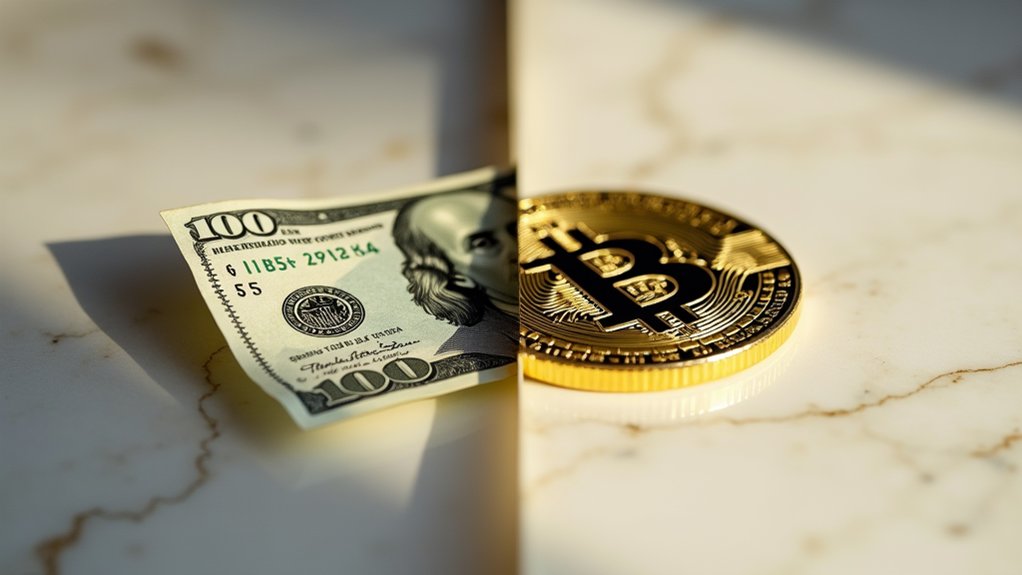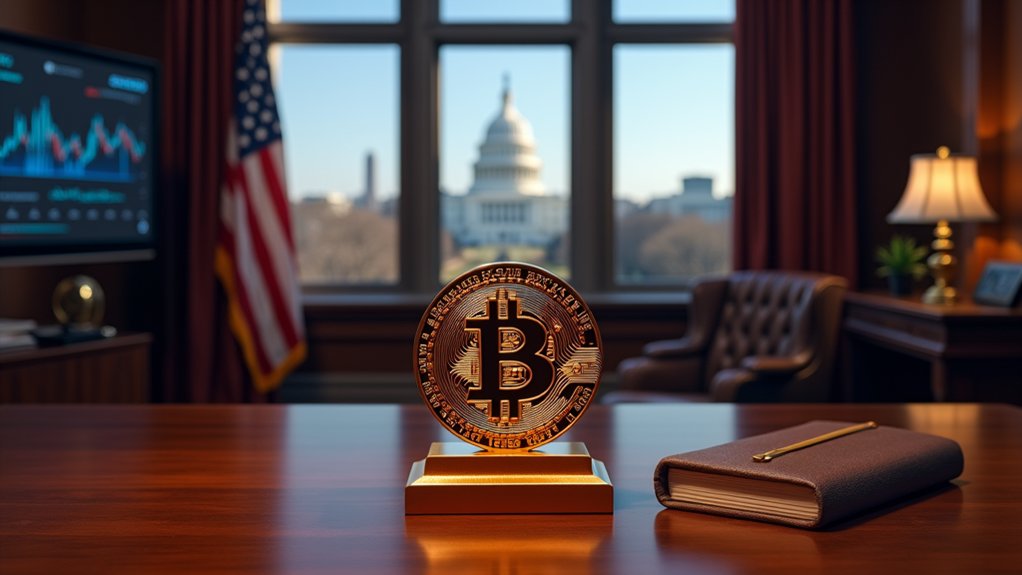When it comes to trust in money, humans face a peculiar choice these days. The battle between Bitcoin and the U.S. dollar isn’t just about technology or politics – it’s about who we trust with our financial future. And boy, do these two have different resumes.
The dollar shows up with some impressive credentials. It’s got Uncle Sam’s backing, runs the global financial show, and has been the cool kid in international trade since the Bretton Woods days. Over 60% of the world’s foreign reserves are in dollars. Not too shabby for a piece of paper with dead presidents on it.
Bitcoin, the new kid on the block(chain), comes with its own trust package. No central authority telling it what to do, a transparent ledger anyone can check, and a hard cap of 21 million coins – because apparently, scarcity is the new sexy. The numbers don’t lie: 17% of U.S. adults have already dipped their toes in crypto waters, with nearly half of young men jumping right in. Fed Chair Jerome Powell’s remarks suggesting Bitcoin serves as a gold alternative highlight its evolving role in the financial landscape.
But here’s where things get spicy. Bitcoin’s wild price swings would make a roller coaster jealous – we’re talking 73% annual volatility compared to the stock market’s modest 15%. Meanwhile, the dollar keeps doing its thing, backed by the Fed’s toolbox of stability tricks and centuries of infrastructure. DeFi projects are revolutionizing how we think about financial transactions, though traditional banking still dominates daily life.
Sure, it’s not perfect, but at least it doesn’t lose half its value while you’re ordering coffee. Among those who’ve taken the crypto plunge, only 5% feel confident about its reliability and safety.
The trust landscape is shifting, though. While 63% of Americans still eye cryptocurrency with suspicion, institutional players are slowly warming up to Bitcoin. The dollar’s dominance isn’t going anywhere soon, but the financial world is changing.
Central banks are cooking up their own digital currencies, and global power dynamics aren’t what they used to be.
The truth is, both systems rely on different flavors of trust. One asks you to trust math, code, and decentralization. The other wants you to trust governments, central banks, and centuries of financial tradition.
Pick your poison – just don’t expect either option to be boring.





